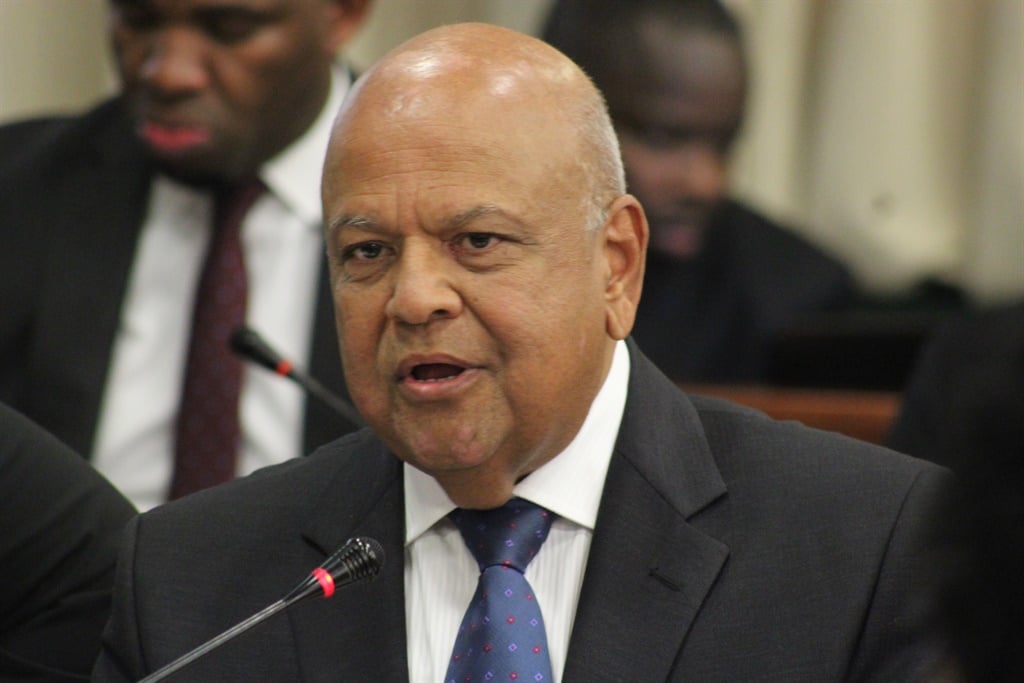
- Minister of Public Enterprises Pravin Gordhan says the Covid-19 pandemic created new challenges for the state-owned freight rail and ports operator.
- Transnet CEO CEO Portia Derby said the group tested 2 595 staff members, of whom 2 582 tested positive and 35 staff members passed away.
- Transnet CFO Nonkululeko Dlamini said even though Transnet revenue grew to R38.6 billion in 2019, performance was depressed since July.
Minister of Public Enterprises, Pravin Gordhan, and a delegation from Transnet have told lawmakers that the Covid-19 pandemic has created a new dimension of challenges for a reforming the state-run rail and port operator, from lower freight volumes to restrictions on global trade.
The minister and a Transnet delegation addressed Parliament's oversight committee on public enterprises on Wednesday morning. In their submission they acknowledged that Transnet's under-performance in recent years has left it in a weakened financial position, with limited room for budget adjustments and balance sheet movement.
Transnet is in the midst of a renewal attempt. It bought in Popo Molefe as its new chairperson in May 2018 and Portia Derby as its CEO in January 2020 as reformers to clean up procurement challenges following damage from state capture creep, and to recover funds lost to irregular contracts.
Molefe told Parliament in 2019 that Transnet had made great progress in recovering funds lost through irregular contracts entered into under previous leadership, although these past governance failures undermined Transnet when it came to issues such as credit ratings by international agencies.
At the start of the lockdown aimed at curbing the spread of Covid-19 in late March, Transnet partially closed some of its operations, but as an essential service continued to operate for purposes such as the import of protective equipment.
This exposed it to both lower volumes as a result of restricted trade globally and the risk of the virus spreading at its operations.
Globally, trade restrictions accompanying worldwide lockdowns triggered a fall in demand for commodities among large economies. As a logistics, port and freight business, this undermined Transnet's business as fewer goods flowed through ports and travelled on railways.
The World Bank expects global GDP to contract by 5.2% while, locally, it is expected to contract by as much as 9.5%.
Gordhan said on Wednesday that over the past two years, Transnet's board had done well to get legacy financial and governance issues resolved. He said Transnet leadership had taken steps to recover funds lost through state capture, although more needs to be done. He explained:
'Praiseworthy'
Gordhan noted that Transnet intervened to ensure strong gains for citrus exporters during the lockdown, and said the state-owned freight rail group was working to respond to challenges such as port bottlenecks and the safety of personnel at ports.
Derby said Transnet had tested 2 595 staff members since the beginning of the pandemic, of whom 2 582 tested positive and 35 staff members had since passed away.
Transnet CFO, Nonkululeko Dlamini, said even though Transnet showed consistent growth in revenue from R37.5 billion to R38.6 billion between September 2018 and September 2019, since July this year performance has been depressed due to the pandemic.
"We are seeing the impact of the pandemic in the last four months of our performance. The economy is contracting, and we expect it to continue. We are focusing on operating expenses to get savings and manage to work within what we have budgeted for," said Dlamini.
Dlamini said container terminals could operate as normal, but petroleum volumes fell.
"Our revenue line in April was only at 60% of what we had anticipated. But in May June and July, we began to see it pick up a level from that 60%. We are closing the August month and expect a pick-up after we moved to level two," Dlamini said.
Transnet Chief of Freight Rail, Andrew Shaw said owing to the pandemic, production guidance for some minerals was falling. For the 2020 financial year guidance for manganese, for example, had been lowered to between 1.7 million and 1.85 million tonnes.
Transnet Chief Business Development Officer Yolisa Kani said South Africa could expect to be burdened by tight credit markets and low levels of private investment, high unemployment and labour militancy and the probable re-emergence of electricity constraints among other factors.